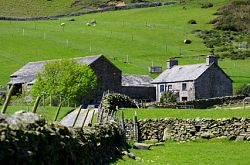

As part of the Government's 25-year strategy to eradicate bovine TB, licences have been issued by Natural England for badger culling in eleven new areas in Devon, Wiltshire, Somerset, Dorset and Cheshire. This follows a decision to extend culling in parts of Gloucestershire and Somerset for a further five years, along with the reintroduction of a badger vaccination programme.
The licences were issued despite opponents claiming that there is no evidence that culling is effective. The Badger Trust has condemned the policy as "politically motivated" and an "insult to the nation's intelligence". The Trust claims that there is no credible science to suggest that culling badgers has a significant effect on lowering TB in cattle. Crucially, it has been shown that the incidence of TB may even increase due to the greater movement of badgers caused by the disturbance of culling.
The Government's chief vet Nigel Gibbens said: "Proactive badger control is currently the best available option and the licensing of further areas is necessary to realise disease-control benefits across the high risk area of England, rather than at local levels." The Government is concerned by the devastating impact of bovine TB on beef and dairy farms, and badger control forms just one part of a comprehensive Government strategy which includes tighter cattle testing and movement controls as well as vaccination in areas where bovine TB is rife.
The Department for Environment, Food and Rural Affairs (Defra) claims that in 2016, operations in Somerset, Gloucestershire, Dorset, Devon, Cornwall, Herefordshire and Wiltshire all successfully met their culling targets. However, some scientists have expressed concerns that the way Defra assesses badger numbers in cull areas and how it sets minimum targets ensures that culls appear successful. Professor Rosie Woodroffe, a wildlife expert at the Zoological Society of London (ZSL) who carried out the scientific assessment of culling badgers to control bovine TB on which the current policy is based, pointed out that if the Government can revise its targets, then by definition the culls will always be successful.
The cull has taken place in Somerset and Gloucestershire since 2013, in Dorset since 2015, and began in Cornwall, Herefordshire and Devon last year. In total, 10,886 badgers were culled in 2016. The Badger Trust claims that over 30,000 badgers could be killed in the next six weeks under these new licences.
Culling will be carried out in a total of 21 areas in the south-west, west and north-west of England this year. The Government has said that it will be launching a new advisory service for farmers in high risk areas this autumn that will provide advice on how to limit the spread of the disease.